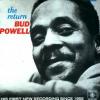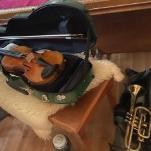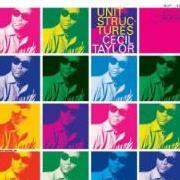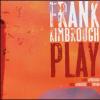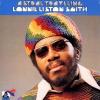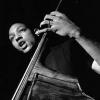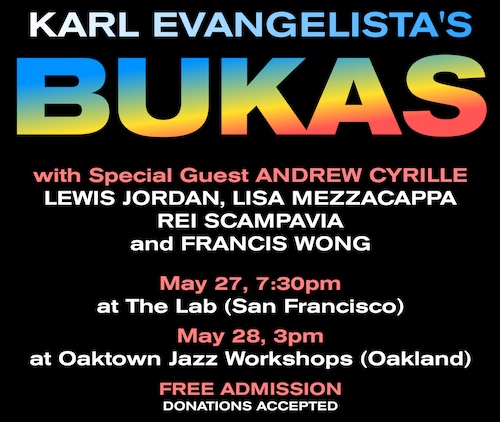-
Posts
2,541 -
Joined
-
Last visited
-
Donations
0.00 USD
Recent Profile Visitors
6,388 profile views
ep1str0phy's Achievements
Apprentice (3/14)
-
Rare
-
Rare
-
Rare
-
Rare
-
Recent Badges
-
Oh man - tough news. I did know Achyutan. We'd fallen out of touch a bit, and our mutual acquaintances had dwindled. We worked together as music educators in Richmond, CA, and we played together on numerous occasions. He was consistently encouraging, and very warm with me. He was one of the first people I thought to check in with back when COVID hit. In a way, Achyutan was my first real view into a certain part of the jazz ethos. He had lived the music that I romanticized growing up, and he welcomed me into that world with open arms. Before playing with Achuyan and company, I hadn't spent much time among musicians who taught from the bandstand - folks who would reprimand you for stepping too far out, or remind you to play the melody when you were just noodling around. Off stage, Achyutan was kind and courteous. The time I spent with him was an object lesson in the fact that music really is a job, a passion, and a lifestyle all at once. These facts are lost to time, but Achyutan really got around on the scene in the 60s. Like a lot. He subbed for Elvin Jones in the Coltrane Quartet - not for a night or two, but for a stint. He was on Pharoah's first record, and he kept a photo of the band from that album in his living room. He spoke of people like Beaver Harris in reverential tones. Hearing his stories really made me reflect on the number of largely unknown musicians who made inestimable contributions to jazz - people who gifted it life in the wee hours, often to audiences who could not or did not grasp the craft. What I found interesting is that by the time we began playing together, he had made a hard shift away from avant-garde music. Even in contemporary academic circles, where there is an incentive to engage in at least some level of cultural nuance, we still tend to think of free jazz a monolith. In truth, there were probably as many different camps as there were participants, and there was certainly a contingent that looked upon the more extreme manifestations of the music with some skepticism. Achyutan could appreciate Archie Shepp's wall-of-noise music from the late 60s, but there was a disconnect between the purity of his bebop vernacular and whatever free jazz ultimately evolved into. It's complex. Regardless, I'll never forget goading him into playing some wilder stuff at rehearsals. I was super keen to play "Impressions" with him - to just be near the reality of that language. I played my Coltrane superimpositions and side steps and additional self-inflicted hysterics. When we were done, he exhaled and winked. Legit to the core. I'll remember him differently, but he should be memorialized for the depth of his musicality. Here's a great video with Gato, in 1972:
-
I just dug this one out for the first time in a couple of years, and I was surprised to discover that my opinion on the recording had drastically changed. Regardless of my initial impressions, I had previously understood this live recording to be of historical value first and musical value second. In a way, it's neither as excessive (and fun) as the previously released Seattle stuff or as focused as the studio album or the '65 Antibes performance. I've now had a few opportunities to listen to the Seattle ALS from beginning to end, and I can see the bigger picture. It's a decisively formalist reading of the music that just so happens to contain a series of tangential features - and many of the improvisations are extraordinary. To those who still complain about Pharoah's contributions to this ensemble - he's dagger-sharp and admirably concise throughout this performance. He's also pretty clued in to the music. Contrast against Carlos Ward - a brilliant player who is just not connected to what's happening around him here. On "Resolution," Ward seems defiantly insistent on avoiding the piece's core tonality, and his largely linear, melodic playing clashes aggressively with everything around him. Pharoah, meanwhile, is all about riding the ensemble's intensity and notching up the energy. Pharoah understood the assignment - he totally belonged on this job. The core quartet's contributions are also quite strong. Coltrane does a superlative job gluing together the guest features and the compositional material, and his short spotlight on "Psalm" matches or even surpasses the energy of the Antibes performance. Elvin is a dynamo throughout, and Garrison (with Garrett) is deeply dialed into the music's half-modal, half-free sonic environment. This document is also a McCoy Tyner master class. His comping throughout - especially on that egregiously out-to-lunch Carlos Ward solo - is brilliant. Free playing may not have been his preferred bag, but he is just so good at pushing the limits of tonality without losing focus. There are long stretches of improvisation that feel both literally and proverbially suspended - i.e., these episodes of harmonic development where it seems like a resolution is coming and it never quite does - and Tyner does not let his foot off the gas. As an aside, his solo on "Pursuance" has to rank among his best as a member of the quartet. I really appreciate revisiting music to see where I may have been (or clearly was) wrong, so my time with this record has been a pleasant late-year surprise.
-
Thanks for the kind words, all! My opinion is obviously very skewed, but Tatsu's work with Fred is across-the-board stellar. I'm partial to On the Run (a trio with Hamid Drake), and there's a live quartet date which is extraordinary - it's sort of an alternate-universe version of the Die Like A Dog band, with Toshinori Kondo included: https://fperecs.bandcamp.com/album/live-volume-v Finally: for those afar, it's looking like the Saturday show may stream - regardless, here's the link:
-
Hello, all- I'm very excited to announce two special live dates in Chicago, scheduled for Saturday, October 21 and Sunday, October 22 at Elastic Arts. These dates feature my What Else is There? project, featuring our friend Alexander Hawkins and bassist Tatsu Aoki. Our drummer Michael Zerang features on October 21, and October 22 features Charles Rumback, Mai Sugimoto, and Jeff Chan (in place of Zerang). We'll be celebrating the release of a brand new album on Fundacja Słuchaj, featuring Hawkins, Aoki, and Zerang. When this ensemble first convened, conversation turned to music and family. Pondering this notion, Aoki asked, "What else is there?" - hence the title. The record is an arresting blend of free jazz and free improvisation, melding my original compositions with some choice Asian American and Chicago jazz inflections. More Info: Night 1 Night 2 Thanks, all! https://www.karlevangelista.com
-
With only a handful of exceptions, all of the records that Moore selected are landmarks. The heavy-handed language may grate a bit, but there's something telling about the fact that we're talking about this list nearly two decades after the fact. In the interval between Moore's list and now, a defined subculture has emerged that valorizes lo-fi free jazz. This contingent is at least significant enough to to have forced a critical appraisal of what constitutes valid improvised music. The advent of streaming fostered a transformation in how we access anachronistic art, which has in turn reshaped the canon. I've leaned away from posting on most topics as of late, largely because of how many of my friends and peers are discussed on this board, but this fact is worth noting: a lot of music that was considered decisively marginal some 10 or so years ago is now quite widely traded. In the early days of new media - back when one's listener base was mediated by literal physical access to LPs, CDs, etc. - history was, by necessity, shaped by the winners. Things are different now. To be perfectly frank, I don't know of many musicians who currently think of Wynton as an existential threat - he merely carries the opprobrium of having made a series of very loud and incredibly ignorant referenda on music that he didn't understand. Talent wins out in the end. I saw it happen, in literal real time, when Roscoe Mitchell began getting his flowers some 15 or so years ago. That dude is a literal genius, but culture had to catch up to his accomplishments. All of this is to say that that Moore list doesn't look nearly as dumb now as it did back when I started checking out this board. Twenty years ago, I would have said that Nommo was an exciting document that is very much of its time. Now that I'm older and am slightly less stupid, I recognize that those Pullen/Graves records are a high watermark for a vernacular that remains undigested. That shit is really advanced. Go ask Jason Moran. Go ask Steve Coleman. It's dealing in rhythmic and timbral concepts that are just so perpendicular to the norm that cats in the past fifty years did not know how to properly copy it. The fact that mammoth figures like Coltrane exist shouldn't numb people to the fact that it's very easy to be wrong about art - a fluid, ultimately subjective thing. Yesterday's dorky free jazz list is today's bellwether for a change in thinking. I'm not saying that Moore is a genius and that the essay is particularly well-conceived - I'm only saying that stuff happened behind the scenes that people rethink a lot of this music.
-

Robbie Robertson, Leader of The Band, Dies at 80
ep1str0phy replied to Hardbopjazz's topic in Artists
R.I.P. RE: the above conversation - I'm a tremendous admirer of the first two records, though I have no strong sentimental attachment to the music. When the Band operated as a collaborative entity, it was truly extraordinary. The group understood pocket in a really special way, and the best of the writing somehow sounds both nuanced and effortless. The bass motion and cascading power chords in "King Harvest" are weirdly sophisticated - not in a proggy sense, but in the same way that the Pixies or Mitski would later harmonize around the melody. It deviates from the pop formula of the era by adapting the harmony to a lead voice, rather than just superimposing the vocal line over a predictable diatonic chord progression. In a practical sense, it presages the "chunks of power chord"-type writing that is all over modern indie and alt rock. Incidentally, there is a certain school of creative music that swears by Robbie Robertson's guitar playing. I admit that It's taken me a long time to get to it. It's fundamentally economical, and its specialness is based on feel and rhythmic nuance rather than energy or sophistication of line. But it's perfect for the Band, and a fine contrast to the escalating virtuosity that prevailed in the guitar heroism of the late 60's onward. -
Just got back from a wonderful tour (and grueling, near-death-defying cross-country trip) - just now saw this. Thanks, all, for your support! Our guy Clifford runs a fantastic show. If you ever wonder how creative music survives outside of the major cities and festival circuit, know that independent curatorial work and concert production are hugely important. All it takes is one person and some ears.
-
Thank you, man! I thought it pointless to start a new thread for this - in anticipation of these shows, I conducted a pretty lengthy interview with Andrew. He's (characteristically) loquacious in the first half, but about 10 mins in, he begins offering some pretty intense insights regarding the intersection of race, commerce, and the future of the music. I know that the majority of you reside in lands afar, but hopefully you can find something of interest here:
-
Hi, all- I'm excited to announce that a long-gestating project is finally coming to fruition. Karl Evangelista's Bukas with Special Guest Andrew Cyrille debuts May 27-28 in the Bay Area. Both of these shows are free admission, with all proceeds going to support local arts organizations. "Bukas" is Tagalog for "tomorrow." This piece explores the idea of Free Jazz/Free Music as an aspirational practice, using musical exploration as a method of imagining better futures. Bukas uses cutting-edge sounds to commemorate and embody the stories of radical Black and Asian artists. More info on the events may be found here: https://www.karlevangelista.com A few bullet points: Andrew is seldom on the US West Coast these days. I just want as many people as possible to get the opportunity to hear him. Thanks to some hard work (and the generosity of the California Arts Council), we were able to make that happen. This isn't a repertory exercise. I've written an entire program of new music for this show, and we're taking some real creative risks. Joining Andrew and me for date will be a cadre of top-flight Bay Area improvisers: Asian Improv aRts cofounder Francis Wong, United Front saxophonist Lewis Jordan, bassist Lisa Mezzacappa, and my partner (and bandmate) Rei Scampavia. On May 26, we'll be releasing Ngayon - a more "in-the-idiom" free jazz recording we made back in 2021. Excited to say that we'll have physicals available at the shows. All the best to y'all, K/ep1
-

Braxton/Mariano "Elegy for a Goose" -- anyone have this?
ep1str0phy replied to clifford_thornton's topic in Discography
This band is absolutely stacked, and I have my doubts that Braxton would pen something and name it "Geese Suite" (unless these are random track titles assigned by a bootleg producer). -
Terrible news. I don't much care for the term "underrated," as it tends to serve as shorthand for "something I get and other people do not." If any free jazz saxophonist deserved that honorific, however, it was Kidd. Like Frank Wright or early Frank Lowe, Kidd was an energy improviser. There's a through-line in that continuum that is, obviously, based in R&B and the blues. At the same time, Kidd had such a singular preoccupation with his altissimo register that you could hear multitudes in it. His smears of sound assumed a structural quality that was really remarkable, especially in extended contexts. Outside of Cecil and a handful of others, I can't think of many improvisers who more completely inhabited the intersection of physical stamina and intuitive constructivism. One of the most memorable concerts I ever witnessed was up at Guelph. Kidd was joined by Joel Futterman and Alvin Fielder. As the evening wound down, someone draped a cape over Kidd's shoulders, ala James Brown. In hilariously studied fashion, Kidd whipped around, saxophone in hands, and proceeded to dash around the room. Just bananas. My Mom was in attendance with me and - God bless her - she couldn't stop raving about it.
-
Exactly. The music conforms to the performers and not the other way around. Emergency sounds to me like an expansion of existing vocabulary. The Tony on this record existed implicitly on Nefertiti.
-
Jim - something I've always admired about your contributions to this forum is that you're very dialed into context. When I first joined this forum, I was getting a lot of my education from editorialized histories. The practical history of this music is so convoluted that I found myself heavily scrutinizing everything that wasn't a primary (or participatory secondary) source. Like, it's easy to cotton to a series of sensible truths, but seemingly every day of my working life has been filled with - "Welp. I was wrong about that one." A canon informed by documentation is intrinsically unreliable, mainly because western modes of information digestion train us to see patterns where they may not exist. Like, "Fusion" isn't really a thing so much as a series of compatible actions and ideas that happened to manifest in the same timeframe. My occam's razor-informed understanding of Lifetime is that Tony just wanted a rock band. Lifetime is a reverse-engineered Cream, in much the same way that a band like Sonic Youth or Rollins Band gets at free jazz from the opposite direction. The deal is that Lifetime is a syncretic construction - it's simultaneously an organ trio and rock band, and the components don't necessarily mesh into their intended shape. The drums are loud, in part, because they were mixed poorly. The albums are filled with vocals because Tony wanted to play songs. Neither of these identified problems confound Tony's intentions, because - like Raw Power - the music makes more sense when it goes into the red. I can guarantee you that if a young organ trio recorded something that sounded exactly like Emergency in 2023 - with worse mixing and ill-conceived compression - it would find an enthusiastic and un-perplexed audience. This is in part because "acceptable sound quality" has become a generationally subjective phenomenon, and in part because whoever recorded this hypothetical new album would not have played in the Miles Davis Quintet. Understandably, I think that we want badly for things to exist in forms that they do not. The Platonic ideal of Lifetime is not Lifetime. That Trio Beyond record is rad, but it's also not it. The fact that both of the classic Lifetime albums are flawed constructions is exactly the point - it's impossible to both experiment and land every decision.
-
I also think that the feel is pretty elusive, but it helps to find an anchor point. The first bass note is on the and of 1, and the phrase "You ain't..." starts on the 1 (i.e., "You aint" = "1 &"). I try to focus on the keyboard. I just listened to it again, and I feel like the time feel is a little easier to make sense of if you start at the chorus and move forward.
_forumlogo.png.a607ef20a6e0c299ab2aa6443aa1f32e.png)

